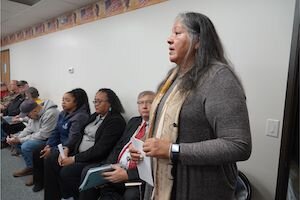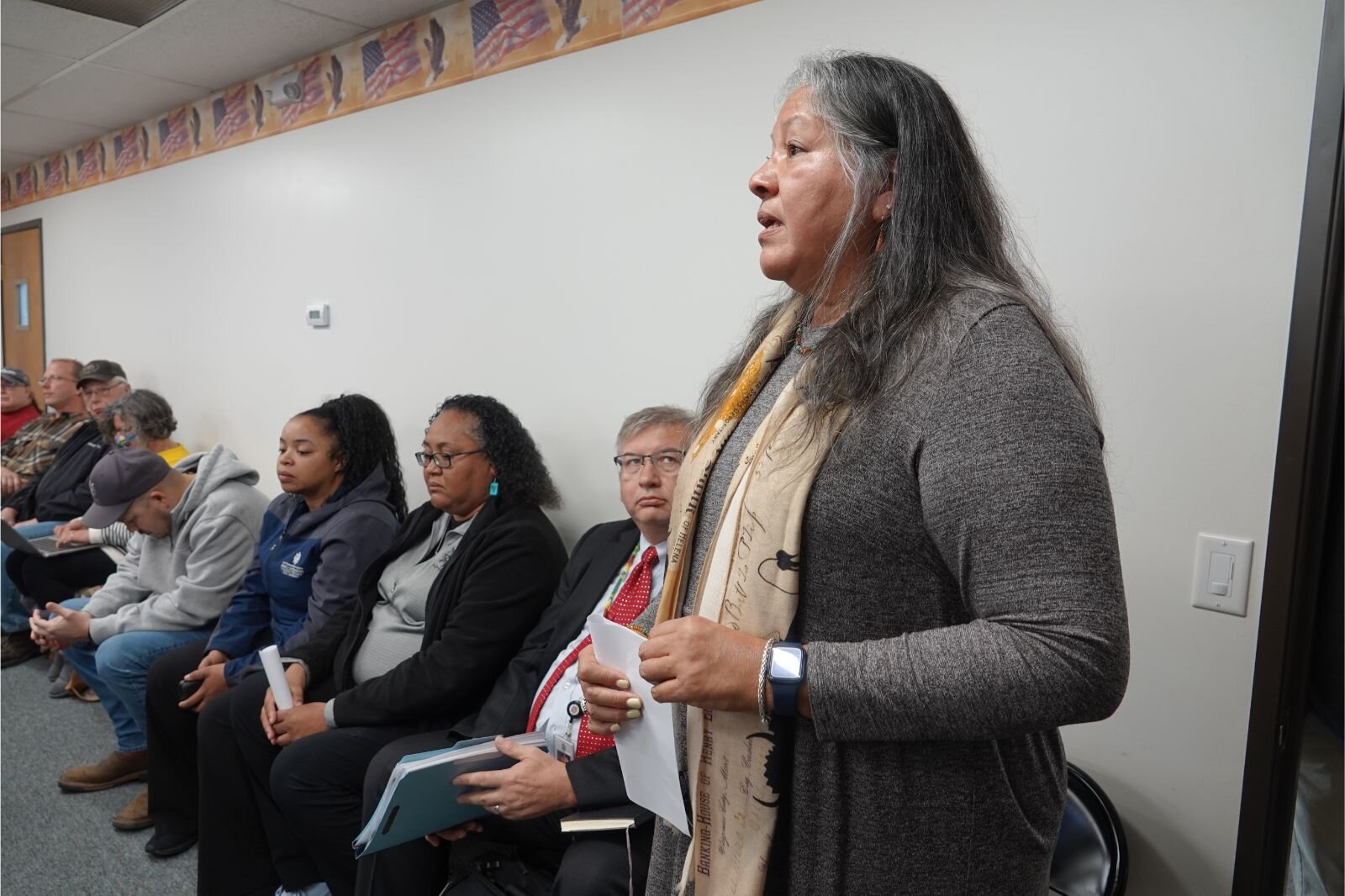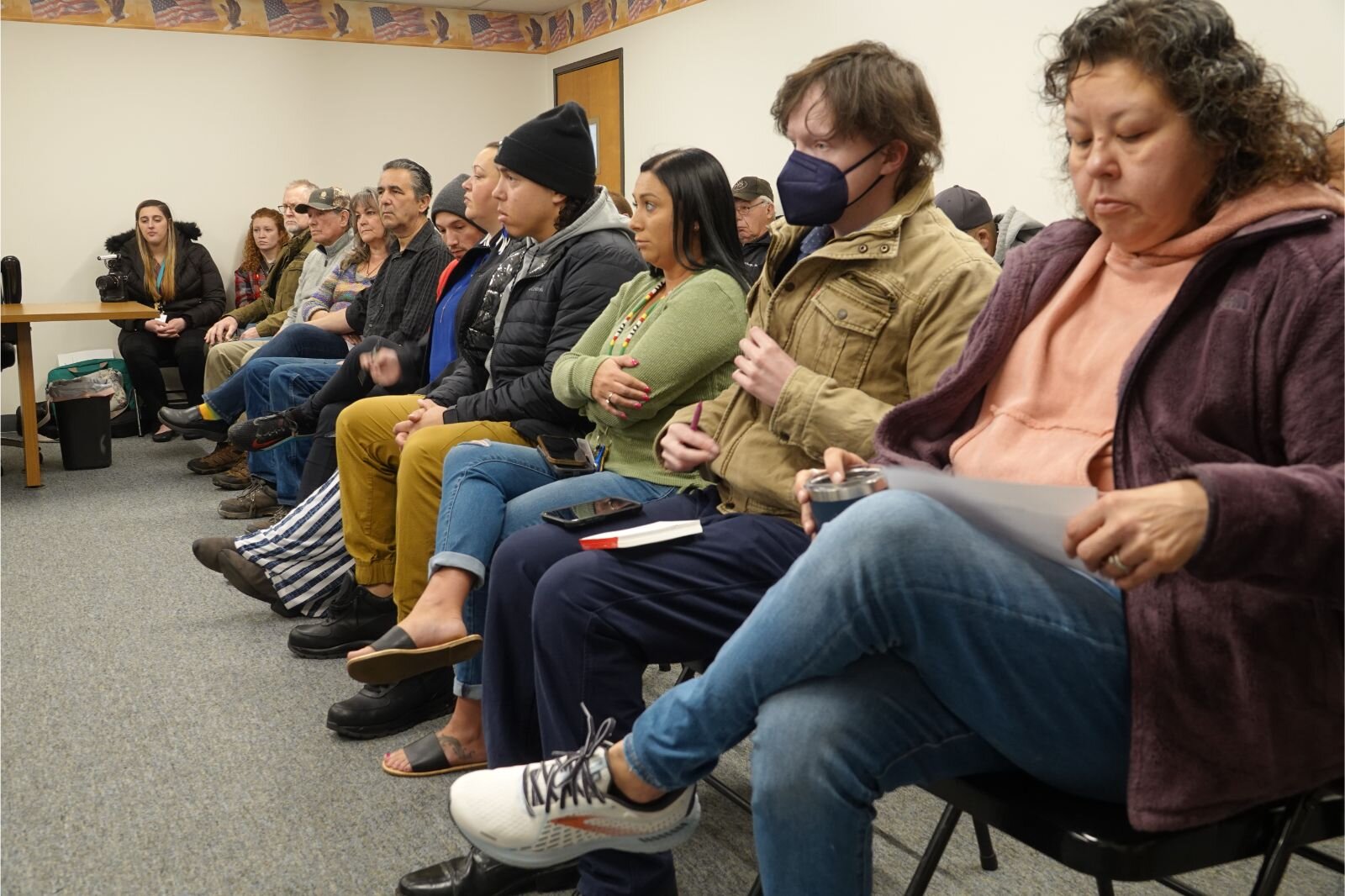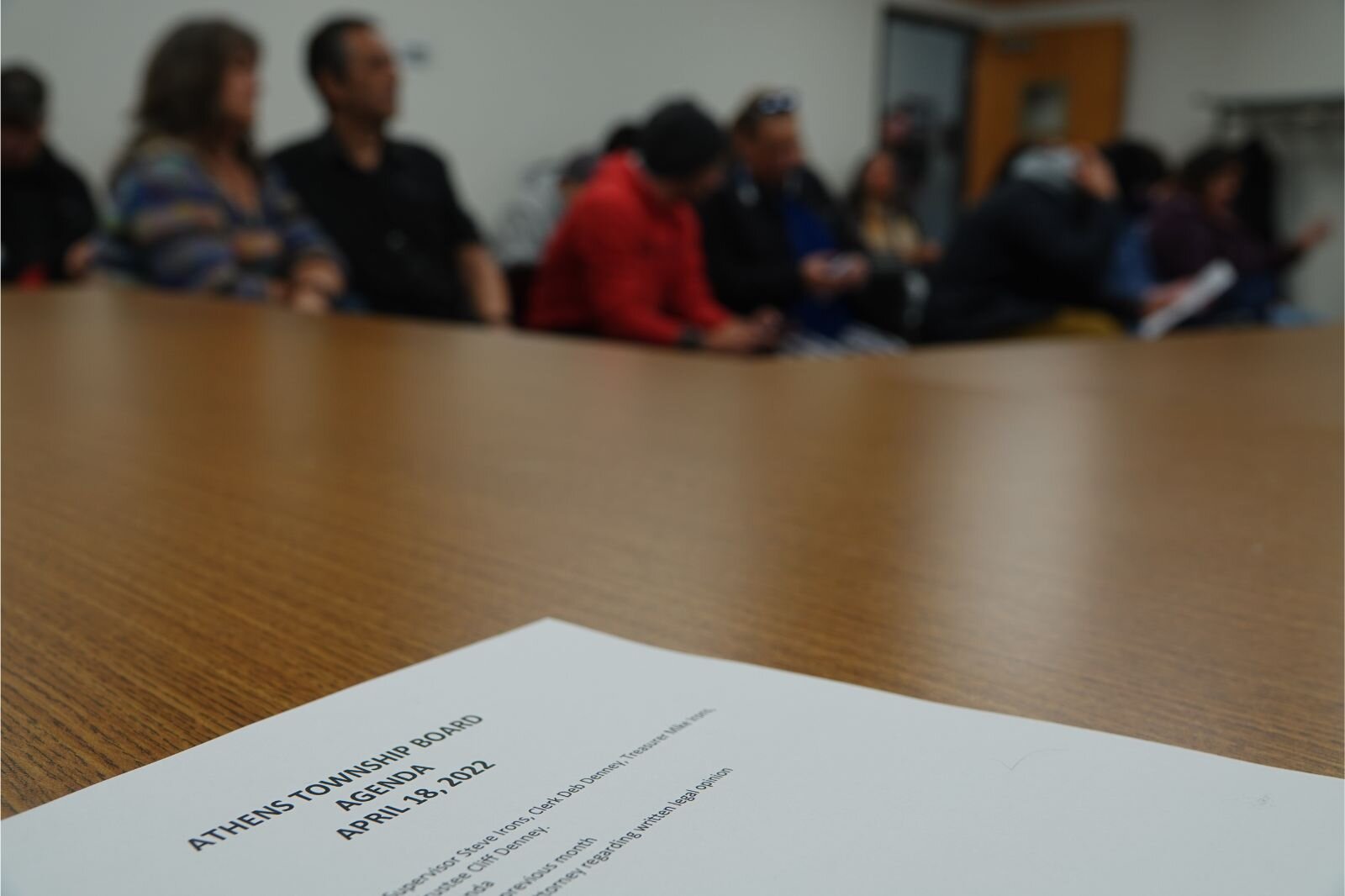Editor’s note: This story is part of Southwest Michigan Second Wave’s On the Ground Calhoun County series.
The development of 18 single-family homes for members of the Nottawaseppi Huron Band of the Potawatomi in Athens Township will proceed as planned despite concerns expressed by a neighboring property owner.
The S Drive South development is Phase 8 of an overall plan to create affordable housing for tribal members who want to move closer to the NHBP’s Pine Creek Reservation. The first seven phases included the construction of 33 homes that occupy 26 acres of the 80 acres owned by the Tribe on S Drive South.
In a special meeting that drew more than 20 people on April 18, Township trustees affirmed their earlier action to approve the development by approving the minutes of a previous meeting.
Township trustees had unanimously approved a proposal for the affordable latest phase of the housing development brought before them by the NHBP during a regular meeting on March 1, but subsequently did not vote to approve the minutes from that meeting after Benjamin Skarp, who owns 89 acres adjacent to the planned development “brought up some information and he wanted a little more time to research it,” says Steve Irons, Township Supervisor.
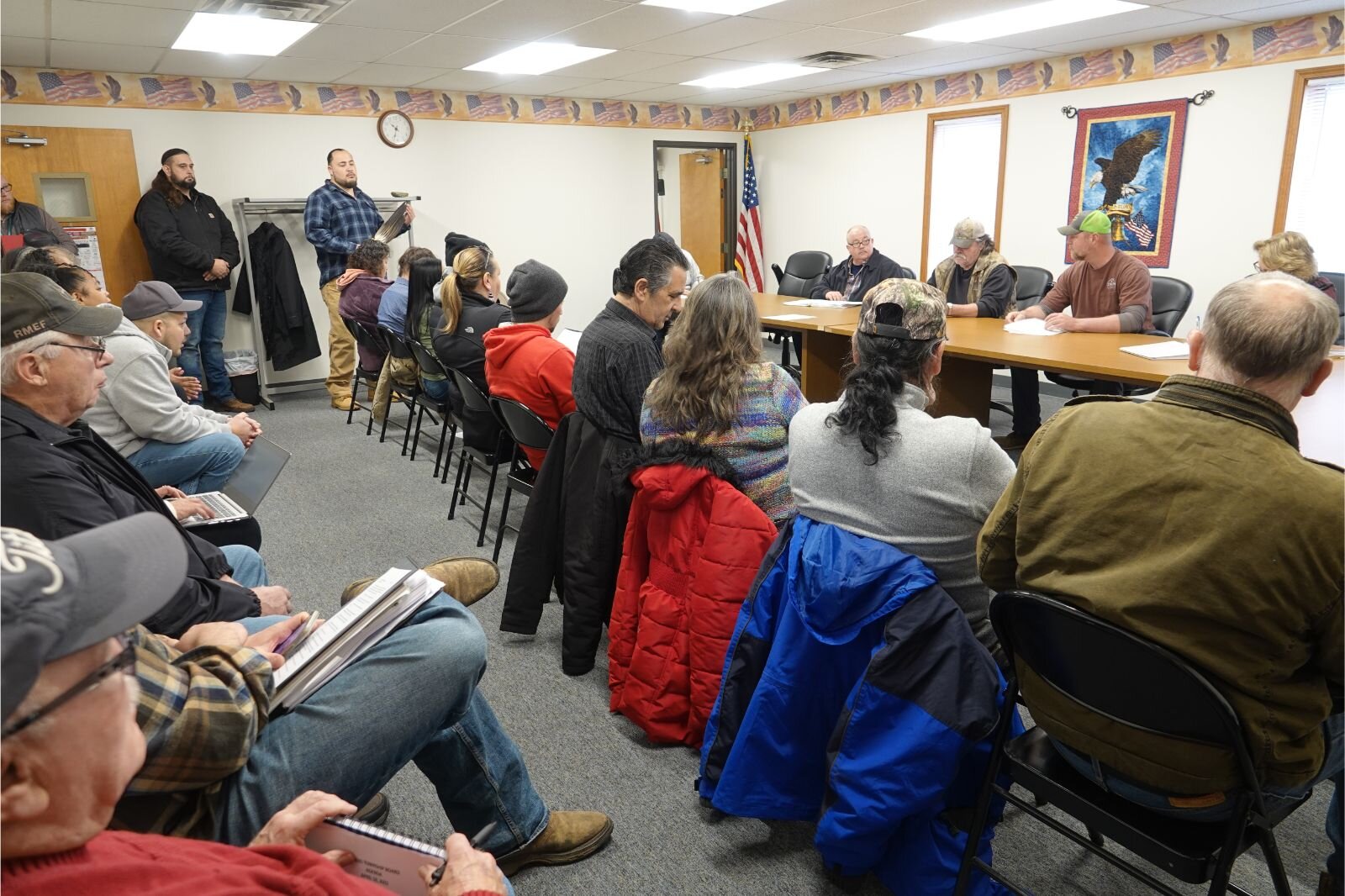
The new homes will be located on a 9-acre parcel at 2548 S Drive South. Skarp’s property is at 2171 Three Mile Road.
Five of the homes to be built will be 18 feet from Skarp’s property line, which he says will prohibit him from using firearms to hunt on about 17 percent or about 15 acres of his total acreage. State law prohibits firearms hunting within 450 feet of an occupied dwelling.
“The Tribe isn’t doing anything illegal and I don’t have a problem with the NHBP,” Skarp says. “My main concern is that my neighbors’ actions are prohibiting me from using my land in the manner in which I want. I’m trying to be a good neighbor, but people have moved to Athens so they don’t have to have neighbors near their property line. People don’t move to Athens to have neighbors 18 feet from their property line.”
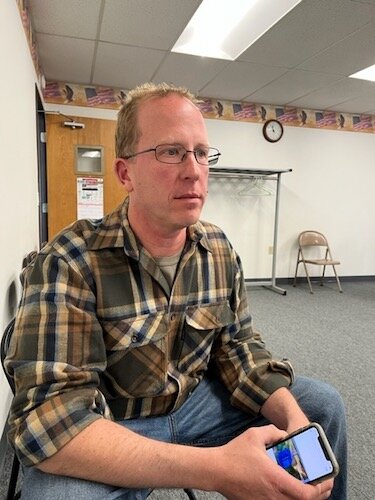
Skarp’s property has been in his family for 86 years. He has owned it since 2014 and operates a sawmill and a farm on it. He says he has been hunting on the property since he was 11-years-old and doesn’t want to be prohibited from firearms hunting on a portion of it. He says he also has concerns about how this may impact his family and heirs and says the hunting prohibition could someday impact the value of his property.
At Monday’s meeting, township trustees went into a closed session that lasted about 20 minutes to discuss their options. After coming out of the closed session, trustees voted unanimously to approve the minutes and leave everything as approved from the March meeting.
During the citizen comment portion of the meeting that occurred after the vote, Skarp cited a township ordinance that he says does not contain express limitations on open space preservation.
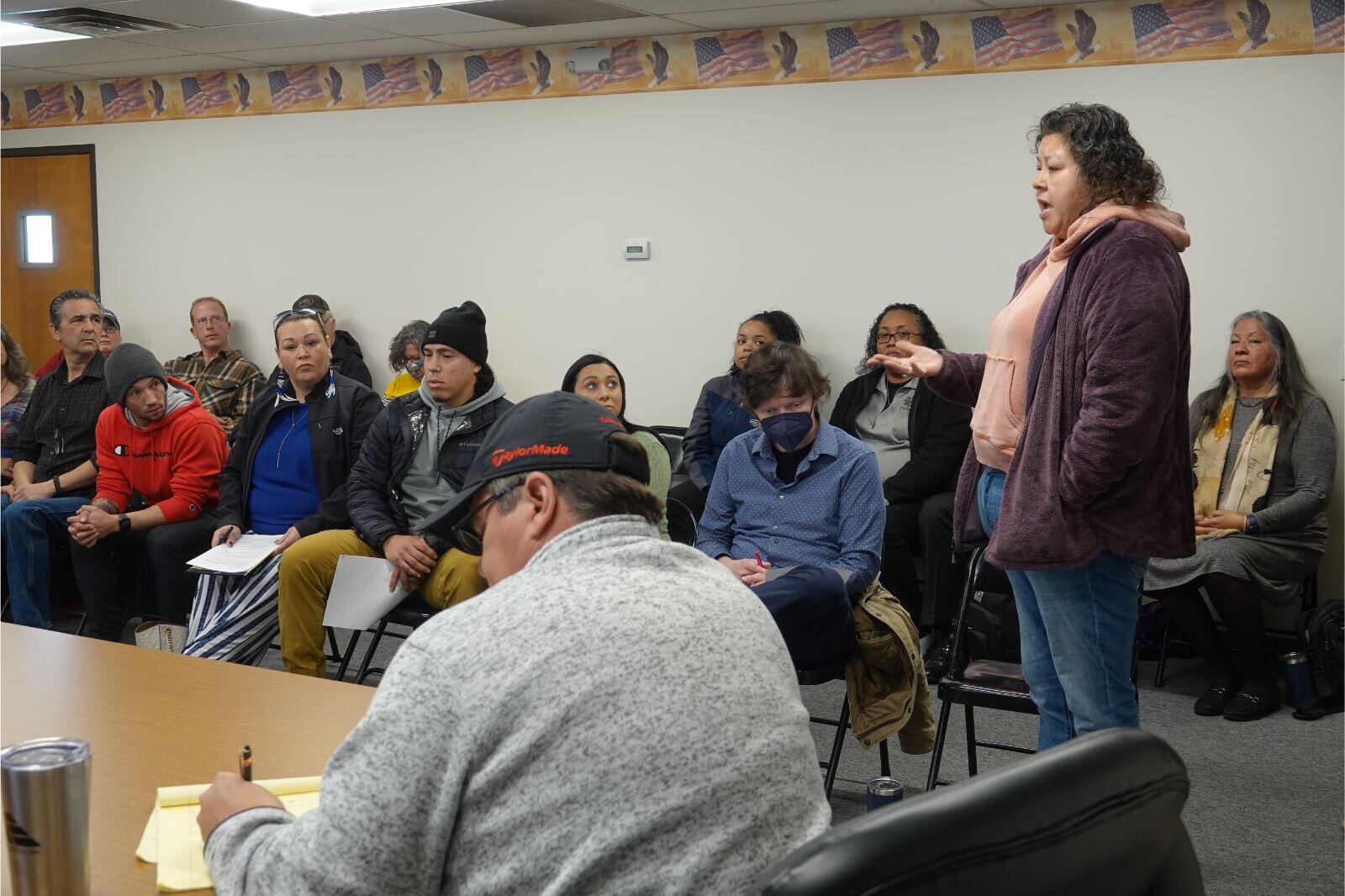
“Because the township’s open space ordinance is not drafted as required, I am requesting that the township place a moratorium on this ordinance until there’s compliance with Michigan’s Zoning Enabling Act,” Skarp said.
In an interview following the meeting, Skarp said the Michigan Zoning Enabling Act contains specific limitations for a township’s Open Space Preservation ordinance.
“Each township’s open space preservation ordinance needs to be adhered to and in my limited legal opinion, Athens Township is essentially not adhering to the state’s requirements,” Skarp says. “They don’t contain the express limitations and since they don’t adhere, they’re in violation of the act. The Athens Township zoning ordinance is an antiquated ordinance. The state mandated that townships enact this ordinance and Athens Township enacted it without considering the ramifications.”
He says the township and its Planning Commission adopted a boilerplate version of the ordinance to meet state requirements but didn’t tweak it to meet the needs of residents. As a result, he says, “The Tribe adapted the ordinance to meet their needs.”
A March 14 letter to Skarp from Barry Skutt, CEO of the NHBP, says that the NHBP’s Housing Director and Chief Planning Officer “conduct project planning in a manner that involves thorough due diligence steps, and this project is no exception. In addition to the township zoning requirements, the use of federal funding also requires an environmental review which was completed per the requirements set forth by U.S. Housing and Urban Development. While it is unfortunate that our project has resulted in your concerns, NHBP followed all required processes and has designed the Phase VIII housing development in a manner that is respectful to the natural resources and open space preservation which has resulted in the approval of our open space community zoning and site plan by Athens Township.”
The letter goes on to say, “Although this is not the solution you were hoping for I hope that the Nottawaseppi Band of the Huron Potawatomi and yourself can continue to be respectful to one another.”
Township Supervisor Irons said after the meeting, “I’m not familiar with what (Skarp is) referring to and the township has done everything it can do. What the Tribe came up with was that proposal and there’s nothing at this point that we can do about it. I know if we’d turned it down, I’m sure there would have been some repercussions from the Tribe because we already approved it.”
Skarp declined to comment on what further actions he may take to maintain his ability to use his property as he has always done.
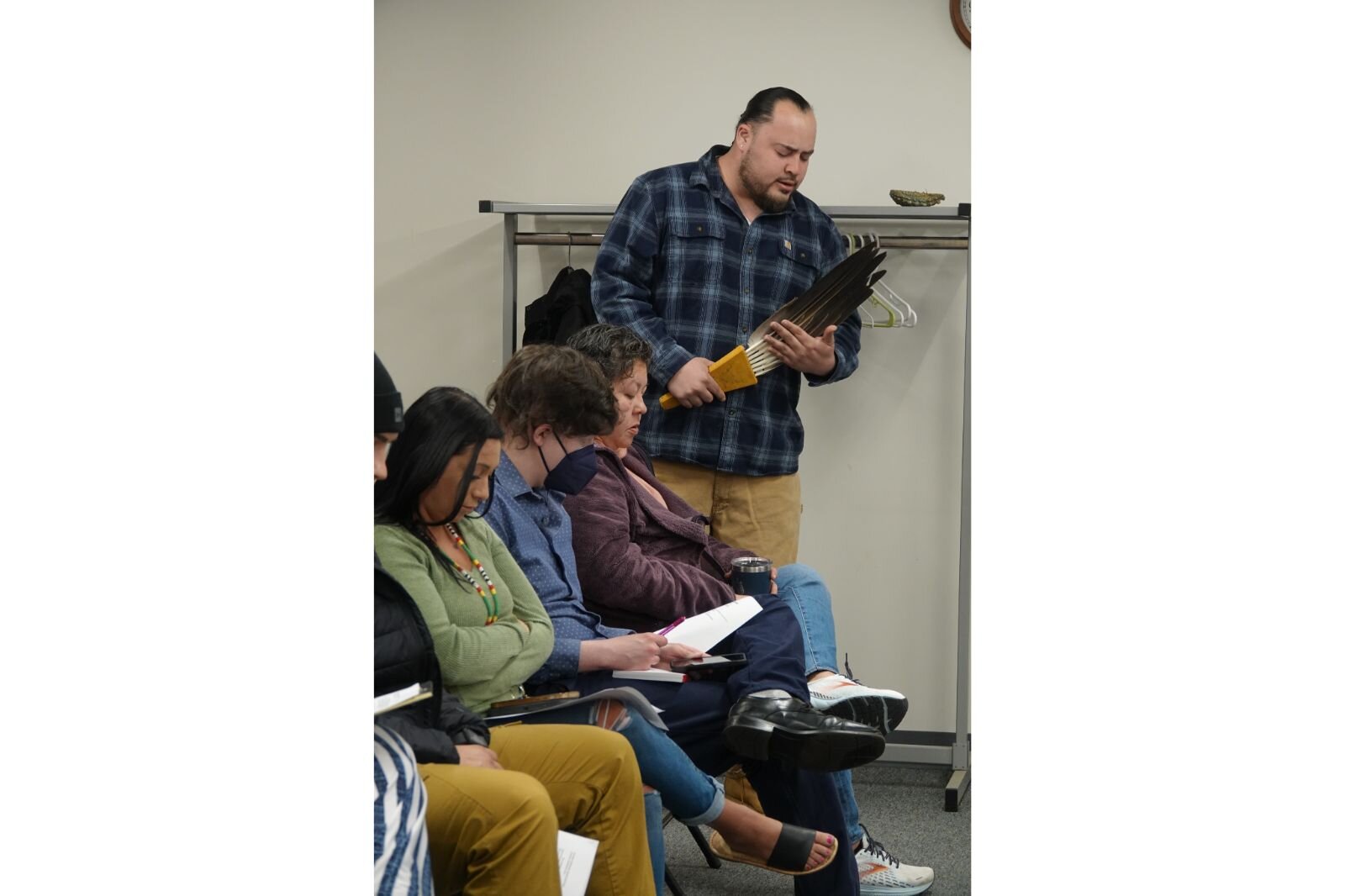
In an interview prior to Monday’s special meeting, John Swimmer, Chief Legal Officer for the Tribe, said the NHBP thought approval of the development was a done deal based on the vote at the March meeting. “As far as we are aware it was approved,” Swimmer said. “Then we received notice on April 6 after the plan was approved that there was going to be a special meeting because there was pushback on the zoning. By law, they can’t go back.”
Danielle Pfeifer, a Tribal member who was one of more than 20 people at Monday’s meeting, questioned the timing of the meeting considering the timeline for construction of the development. She is a homeowner in Athens.
“I’ve been here my whole life. We’re trying to prosper and better our community. We’re slated to break ground on May 25. That’s six weeks away. All this time this property has been vacant and for so long it was dilapidated before the Tribe bought it,” Pfeifer said. “We’re trying to grow our community and better that land. We’re in the last hours before we break ground and start prospering for our community and now we’ve had objections. The NHBP has never had any walls up. A lot of your residents have come out to our grounds to help us. I don’t think we’ve ever as a tribe tried to hide anything from you. I question the timing.”
Filling a need in phases
The majority of the homes in the first seven phases are located on the 120-acre Reservation or are adjacent to it on the S Drive South property, Swimmer says.
Swimmer says Athens Township residents did not express concerns during the development of the first seven phases of the development.
Each of the current and future housing units are classified as Native American Housing Assistance and Self Determination Act (NAHASDA) units that serve Tribal families.
“The Native American Housing Assistance and Self Determination Act of 1996 (NAHASDA) reorganized the system of housing assistance provided to Native Americans through the Department of Housing and Urban Development by eliminating several separate programs of assistance and replacing them with a block grant program,” according to information on the NAHASDA website.
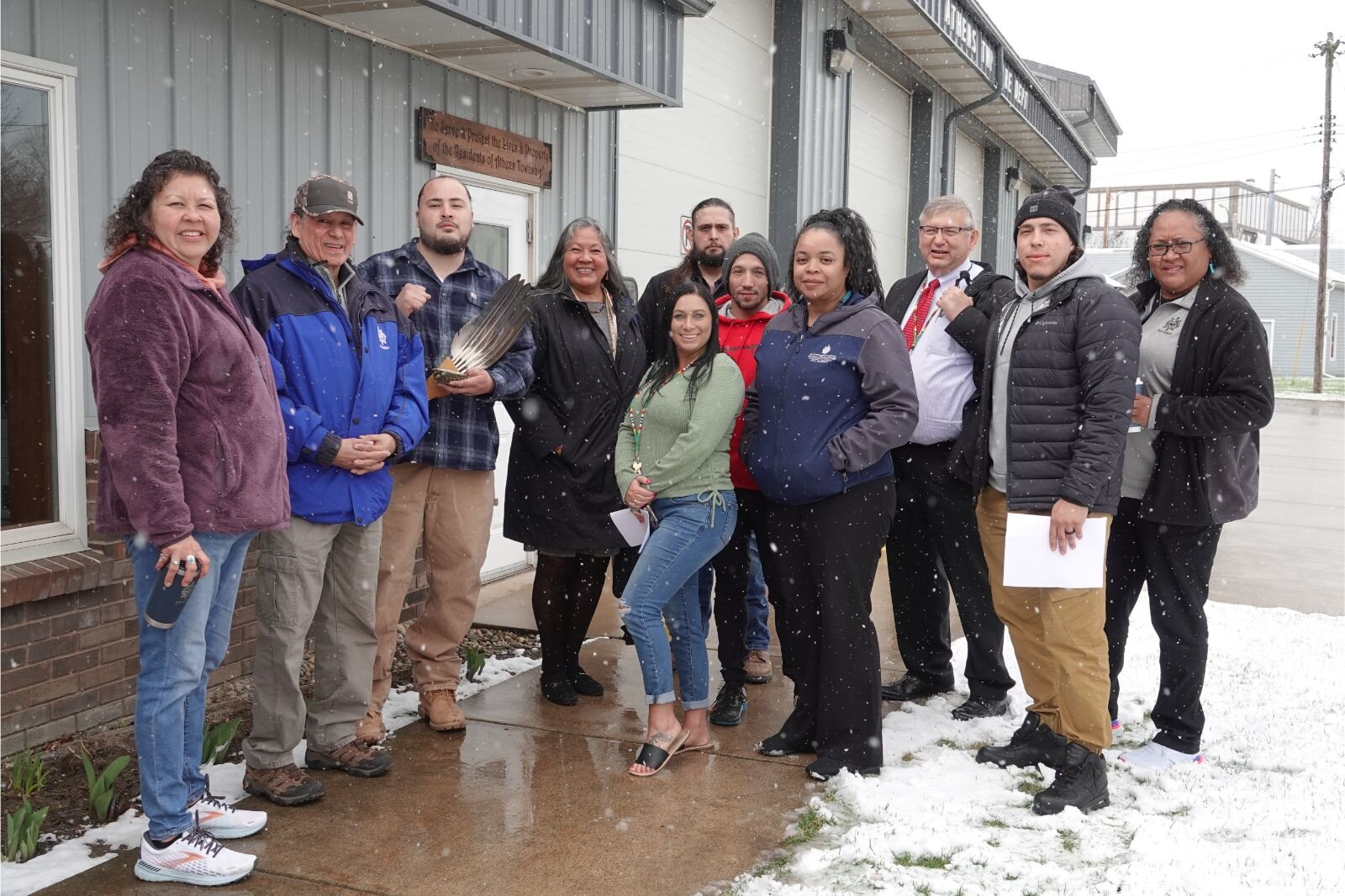
The ongoing construction is based on the demand from tribal members who want to live in closer to Pine Creek.
“We have tribal members who want to come back to the Reservation, but there’s nowhere for them to live,” Swimmer says. “We have a waiting list of 16 Tribal members/families primarily from within Michigan who are trying to get housing and come back. A lot of them are families who are trying to reconnect with their community. Historically, the Reservation was greatly diminished and they’re just trying to rebuild the community.”
More than 50 percent of Tribal members of southwest Michigan live in Calhoun, Branch, and Kalamazoo counties. Many of them qualify for affordable housing.
Within the United States, 1 in 3 Native Americans live in poverty, with a median income of $23,000 a year, according to the American Community Survey, an ongoing survey that provides “vital information” on an annual basis about the country and its citizens.
Native Americans represent about 1.5% of the total U.S. population, but they make up 2.8% of the total number of homeless in the United States, according to The State of Homelessness in the U.S. — 2022, an article published on the Policy Advice website.
In 2017, NHBP approved a Master Plan that prioritized land for additional residential development to address the unmet need for affordable housing for Tribal families. In 2021, NHBP submitted and was successful in obtaining a $2.5 million HUD grant – Indian Housing Block Grant Competitive Grant Program for the purposes of developing a roadway and an initial eight affordable housing units for Tribal families on the S Drive South property. The NHBP has identified leveraged funding for this project in the amount of $822,095 making the project total nearly $3.282 million.
“We greatly need that support by community members to keep this town going,” said Douglas Taylor, the NHBP’s Tribal Historical Preservation Officer, to township trustees during the meeting.
Nancy Smit, Tribal Council Secretary, said her mother, a 1944 graduate of Athens High School, “always talked about how the residents of Athens were good neighbors and that you as a community now have the reputation of helping and we are grateful for that and offer back that help. We look forward to allowing our families to sit back on their sovereign land and have their families and continue to be good neighbors.”
Caption for group photo: From left, NHBP Tribal Member Danielle Pfeifer, NHBP Tribal Member and Tribal Historic Preservation Officer Doug Taylor, NHBP Tribal Member Kevin Harris II, NHBP Tribal Council Secretary Nancy Smit, NHBP Tribal Member Lauren Cuevas, NHBP Culture Department Manager Fred Jacko, in back, NHBP Tribal Member Johnathon Moulds NHBP Tribal Member Tiesha Williams, NHBP Chief Legal Officer John Swimmer, NHBP Tribal Member Julius Harris, and NHBP Tribal Council Vice Chairperson Dorie Rios.

